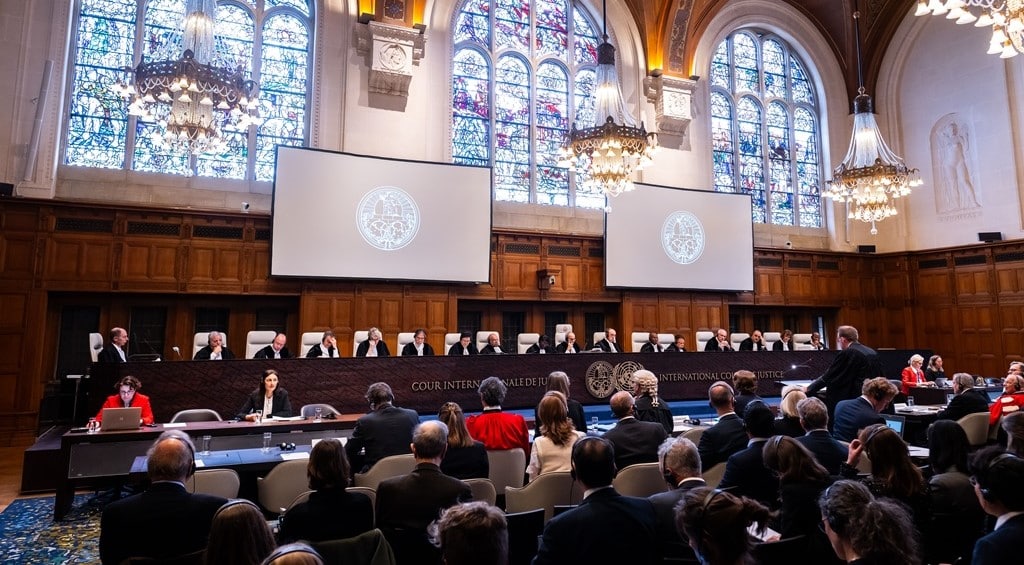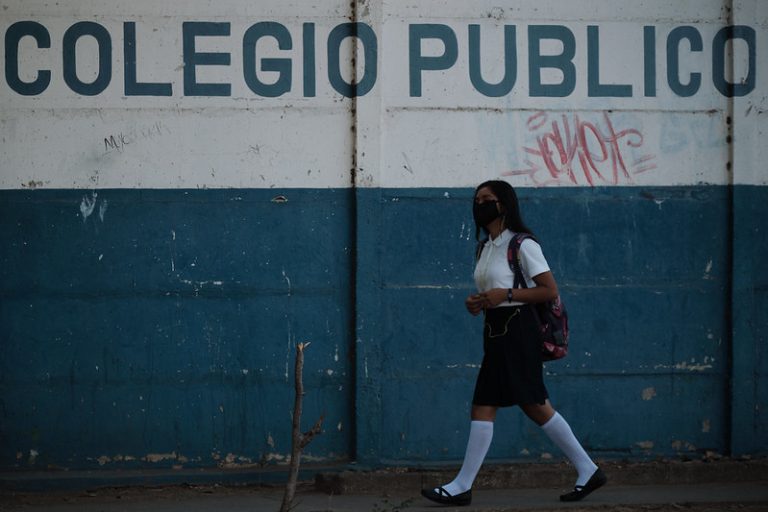3 de abril 2020

ICJ Rules Against Nicaragua's Request For Germany to Halt Arms Sales to Israel

PUBLICIDAD 1M
PUBLICIDAD 4D
PUBLICIDAD 5D
While classes have been suspended in some countries, under the Ortega regime the school principals threaten parents who refuse to send their childrens

Marcelina Peralta decided not to send her son to school anymore until the Covid-19 pandemic no longer threatens the family’s health. “The school principal tried to persuade me, but the life of my loved ones comes first,” asserted this mother, whose 10-year-old son attends a Managua public school.
“The principal called me on the phone and insisted that my son was going to miss his exams and not receive his report card, but I was firm. I told her no. (…) If my son fails the year, I don’t care,” Peralta told Confidencial.
Peralta opted to hire a private teacher to tutor her son. Although these classes won’t be recognized by the Ministry of Education, she affirms that the academic certificate isn’t the most important thing right now.
“It will serve him as a foundation for next year, when all this has passed, so that the year won’t be very hard for him. The contents he’s being given are at a fifth-grade level, and my intention is that next year they evaluate him and integrate him back in with his other classmates,” explains Peralta. She spared no words in berating the “irresponsibility” of Daniel Ortega and Rosario Murillo’s government in the face of the pandemic. “They want to make us disappear,” she lamented.
Three months after the outbreak of this new Coronavirus was confirmed in the Chinese city of Wuhan, there are now over a million people infected with Covid-19 all over the world [as of 4/1/2020]. Of those, over 50,000 have died, while another 209,000 have recovered, according to the most recent data.
Nicaragua confirmed its first case on March 18, and by March 31 had five confirmed cases. According to the government, they were “all imported”. The regime refuses to follow the international recommendations for preventing contagion, among them suspending classes in the public schools.
Seeing the recommendations adopted in other countries and the indications of the World Health Organization, many Nicaraguans have adopted their own prevention measures, among them not sending their children to school.
In the Managua school where Marcelina Peralta’s son was studying, other parents have made the same decision she did. While the economic situation of each family is different, uppermost in the minds of all these parents is the protection of their children and of the elderly in their homes. The latter have been identified as one of the groups most vulnerable to dying from the virus.
Nonetheless, the principals and political secretaries from the Governing political party, in line with the official directives, persist in trying to “raise consciousness” among the parents, at times with house-to-house visits, so that they’ll allow their children to attend class.
“The teachers aren’t demanding anything, the ones who are going around like crazy people are the [Sandinista led] neighborhood committees and the school principals. I understand my son’s teacher, because he has to support his family, and he understands me,” Peralta stated.
Concerned about her daughter’s health, Carmen Solano, 48, attended a meeting called by the school principal, at the parents’ request, a day after the first positive case was confirmed in Nicaragua on March 18.
“The principal told us “the classes won’t stop moving forward”. That’s what she said as an opener, and we were angry because we felt she was trying to give us orders about our lives and those of our children,” Solano recalled.
The mother left the meeting, annoyed. She didn’t want to chat with the principal, but continued the discussion with other parents, who also disagreed with what the principal had declared.
“I told my daughter that she wasn’t going to continue in class, because it would put me at risk, since I have asthma; also, my father. who’s now fairly elderly,” Solano tells us. The mother affirmed that in the face of the government’s negligence, the population must adopt the measures that allow them to take care of themselves.
Solano said she would send her daughter back to school when the risk of this emergency has lessened and, even though she was close to graduating, her mother maintained that she can’t risk the safety and health of her family.
“I want to see my daughter become a doctor, but I’m not going to achieve that by being irresponsible. No one can force me to send my daughter and expose her to the risk of a mortal illness. The government is irresponsible, but they can’t force me to go against logic,” she complained.
Several teachers from the country’s public schools confirmed to Confidencial last week that the quantity of students coming to class has dropped enormously, because the parents aren’t willing to let their children be exposed to the Covid-19 virus.
“The parents are very frightened. In my nine years, I’d never seen so much absenteeism,” said Laura, a Managua teacher who’s also unhappy about the Ministry of Education’s irresponsibility in continuing with the classes, even though other countries in the region have declared a temporary halt to the school year, and in Nicaragua many classrooms are nearly empty.
The Multi-disciplinary Scientific Committee, recently brought together to offer Nicaraguans their recommendations during the pandemic, warned on Tuesday of the high risk of contagion in the public schools and universities that continue offering in-person classes in Nicaragua.
The group, which includes health policy analyzers, epidemiologists, public health experts and doctors, has organized to offer recommendation based on the scientific evidence from the pandemic and their professional experience.
The Committee confirmed that at least 165 countries all over the world have ordered school closures, opting for on-line or distance education to impede the expansion of the virus.
“Certainly, a majority of families aren’t sending their children, so that the learning of these students will be deeply affected if an alternative isn’t offered, warned the Committee, after declaring that “continuing the school year in the manner originally foreseen isn’t viable.”
The Committee recommended that the most effective measure in this type of situation is to opt for distance learning, exploring confirmed options to implement it. “The only responsible action right now is to immediately close the schools and universities to achieve a 25% reduction in the growth rate of new cases,” they specified.
Independent experts project that in Nicaragua the number of infected and the deaths will be much more than what the government has projected, which is some 32,000 cases and over 800 deaths over a six-month period. The specialists maintain that the national system will find itself overwhelmed in the next three weeks, due, in part, to the lack of preventive measures adopted and promoted by the government.
The Committee feels that the suspension of in-person classes is vital to try to put the brakes on a chain of contagion that could cause the national health system to collapse. The system has an average of 12 beds for every 10,000 inhabitants.
“Closing the educational centers poses important challenges, since the preschool and elementary students won’t receive the school lunch, and a large sector of the economically vulnerable population doesn’t have internet resources for online learning. However, a collective effort with the work of all will allow us to utilize alternative solutions that have already been proven,” they expressed.
PUBLICIDAD 3M
Confidencial es un diario digital nicaragüense, de formato multimedia, fundado por Carlos F. Chamorro en junio de 1996. Inició como un semanario impreso y hoy es un medio de referencia regional con información, análisis, entrevistas, perfiles, reportajes e investigaciones sobre Nicaragua, informando desde el exilio por la persecución política de la dictadura de Daniel Ortega y Rosario Murillo.
PUBLICIDAD 3D